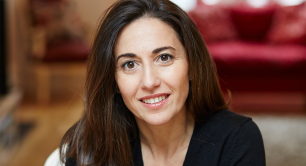Audit meets the Occupy movement
It's difficult to regain public trust when it's so easy to blame 'the system'. Richard Spencer, head of sustainable business at ICAEW (Institute of Chartered Accountants in England and Wales), argues that it's time for auditor and Occupy The City activist alike to co-create a way forward.
I never thought I would say I was passionate about audit. However, I have found I am and this isn’t some Pauline conversion to accountancy, but rather the result of a project I am involved in (“AuditFutures”) that is asking among other things what it means to be a professional in the 21st century.
Whilst the loss of public trust in business - and in particular the financial sector – in the recent years following the financial crisis is being turned around, its restoration is fragile as this year’s Edelman Trust Barometer shows. Edelman note:
“The importance of trust – or lack thereof – remains front and center within one of the world’s most vital sectors [financial services]. Despite slight improvements in trust levels compared to five years ago, the demand for structural and regulatory reform in the industry remains high across the globe, and the need to rebuild trust through performance is increasingly apparent”
Both the loss of public trust and its fragile state should be a cause for concern. I would argue that the audit profession has a unique position in the economic space of maintaining the public’s trust in companies’ activities. The financial crisis raised a question in the public mind: where was the audit profession in all of this and what was it doing? After all, didn’t we trust them to tell us if these institutions were not performing as we were led to believe?
On top of this bad press for auditors we, as a society, seem to have been singularly reluctant to identify individuals who should be held to account, instead blaming ‘the system’. A different standard appeared to be applied to the general population: when our cities broke out in riots the courts cranked up to full steam with impressive efficiency to prosecute individuals. So it seems that systems ‘break down’ but individuals ‘behave badly’. One might have wondered if the professions had a get-out-of-gaol-free-card in ‘the system’ that was denied to others.
In response to this ICAEW and The Finance Innovation Lab joined forces to create a space in which all are welcome – auditor and Occupy The City activist alike – to co-create a way forward. At AuditFutures we are asking how the audit profession can be part of the answer to restoring the public’s trust rather than being, or appearing to be, part of the problem.
The project is led by my colleague Martin Martinoff (who is also passionate about audit and also not an accountant!) and we’ve developed some really exciting stuff with service designers at the Royal College of Art (how do you design trust?), getting young American auditors to imagine a world without audit, and engaging civil society leaders at the RSA on how we can promote an enlightened and self-reflective profession. Have a look at the website www.auditfutures.org and come and join us: all views are welcome.
Implicit in this journey is a question about what does it mean to be a profession – what is that highest aspiration the profession above and beyond what the law requires that can be aspired to? Also it invites the question of what it means to be a professional. The answer to this must, if it is to meaningful, incorporate a notion of acting in the interests of the public; it must be about a social purpose.
We expect our doctors, nurses and teachers to be driven by a sense of vocation and serving the public; of more than just financial return. Should we therefore ask the same of other professions? Why should we not expect the same of our auditors? I think if we can find a positive answer to this then there is an important role the professions can play today; if not then I wonder if they don’t start to appear something of a relic of a bygone age.
This sets me alight because it speaks to a world in which business and society are joined together in a positive and dynamic way.



